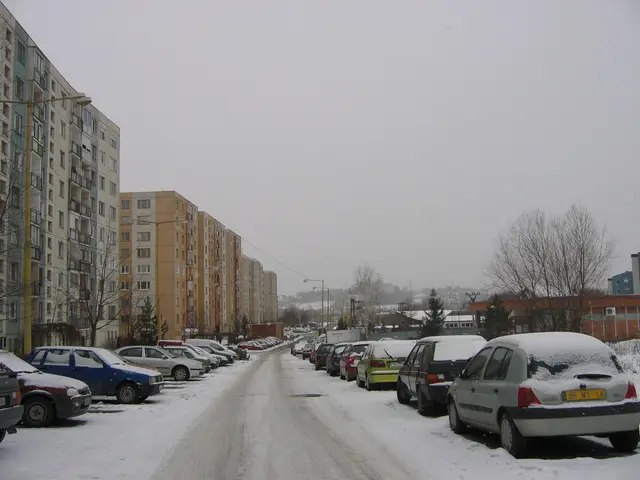Regional organization Ecowas marks its 50th anniversary while grappling with unity challenges
West African Bloc in Crisis: ECOWAS Faces Existential Question Mark
In a major blow, Mali, Burkina Faso, and Niger walked away from the group in January, leaving the ECOWAS—West Africa's regional organization—grappling with security threats and economic challenges. Established in 1975 in Lagos, ECOWAS aimed to bring West African nations closer together. Half a century later, its dreams face a tough test.
Originally, ECOWAS sought to foster economic and political integration to promote growth and unity. However, the rise of violent extremist groups across the region proved challenging. As Amandine Gnanguénon, a senior researcher at the Africa Policy Research Institute in Berlin, noted, ECOWAS was not prepared for this.
In response, ECOWAS has adapted, but its resources have been stretched thin. This is evident with the departure of Mali, Burkina Faso, and Niger in September 2023, who formed a new group, the Alliance of Sahel States (AES), further weakening ECOWAS.
To survive, experts argue that ECOWAS must focus on its original goals and improve communication with the people. "Many people don't know what ECOWAS is," Gnanguénon said. "There is a big communication gap." Real change, however, will only happen if West African leaders step up.
ECOWAS has had mixed success in achieving its goals. One of its achievements has been simplifying travel for citizens, with an ECOWAS identity card eliminating the need for residence permits. However, plans for a single currency have been shelved multiple times. The organization has fallen short on many of its goals, with trade remaining at a mere 15% within the region.
The departure of Mali, Burkina Faso, and Niger has raised concerns among traders, particularly at Abidjan's busy Adjamé market. Traders from across West Africa fear new restrictions on movement and higher customs charges. Despite the concerns, trade links between the AES countries and other ECOWAS members remain robust, with Mali and Burkina Faso accounting for a significant percentage of Ivory Coast's exports.
In addressing the challenges, ECOWAS has agreed to treat goods and services from the AES countries under the ECOWAS Trade Liberalization Scheme (ETLS) to maintain trade links. To ensure long-term survival and relevance, bold reforms are needed, focusing on strengthening economic and political integration, enhancing the effectiveness of ECOWAS institutions, accelerating the realization of a single currency, and investing in education to empower the youth.
Sources:
- Al Jazeera
- Bloomberg
- Guardian
- Reuters
- Africanews
1.The international community is closely watching the West African Bloc, ECOWAS, as it faces an existential crisis following the departure of Mali, Burkina Faso, and Niger.2. Amidst security threats and economic challenges, the anniversary of ECOWAS highlights a tough test for its original goal of fostering economic and political integration in West Africa.3. As the General News headlines report, ECOWAS, established in 1975, has been weakening due to the formation of a new group, the Alliance of Sahel States (AES), by Mali, Burkina Faso, and Niger.4. Political analysts argue that to survive, ECOWAS must focus on improving communication with the people and returning to its original goals, such as strengthening economic and political integration.5. The policy-and-legislation landscape for ECOWAS is complicated, with mixed success in achieving its goals, such as simplifying travel for citizens with an ECOWAS identity card, but falling short on many others, like trade within the region remaining at a mere 15%.6. Despite raised concerns among traders following the January departure of the AES countries, trade links between the AES countries and other ECOWAS members remain robust, underscoring the need for effective peacekeeping policies in West Africa to promote stability and reciprocal benefits.









